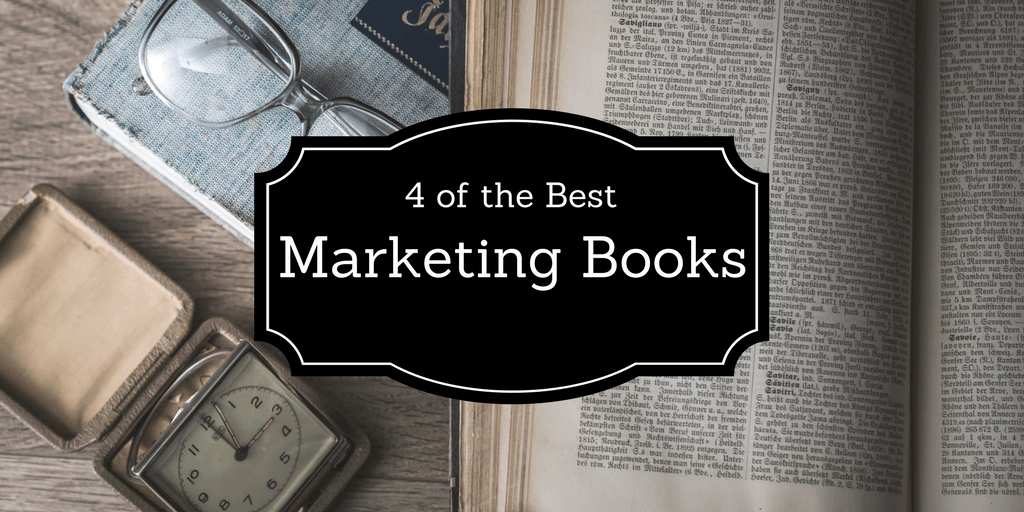Learning how to become a successful marketer takes time and some false starts. Many marketing professionals would agree that making mistakes and learning from those mistakes is often the only way to become a successful marketing professional. One of the most useful tools that marketing professionals can use to avoid making mistakes is education. While the Internet provides a lot of marketing resources and knowledge, reading a book is still the best way to gain in-depth knowledge. Veteran and new marketers alike will find the below list of books to be helpful when it comes to learning new marketing tips and strategies.
The Long Tail by Chris Anderson
Chris Anderson is the former Editor-in-chief of Wired magazine. His book The Long Tail explores the trend of niche economics. The term long tail comes from the shape of a distribution graph where the distribution starts off high and then continues low for an extended period of time:

The concept that Anderson explores in the book is pretty simple. Businesses that focus on providing a lot of different products—even if the products don’t sell a lot and the demand for them isn’t strong—have a high chance of becoming more profitable than businesses that focus on keeping a large stock of items.
Amazon is the best example. On the website, customers have access to a wide variety of obscure books. Amazon doesn’t keep a large stock of every obscure title, but if you add up all of the sales of obscure titles, it’s very likely to be higher than a single bestseller. Many experts believe that long tail is the future of business and marketing. Read this book to start thinking about how you can take advantage of the concept in your marketing.
Guerrilla Marketing by Jay Conrad Levinson
The term “guerrilla” gets thrown around a lot these days, so you might roll your eyes at this book’s title. However, Guerrilla Marketing is a classic marketing books, and it shouldn’t be ignored. It was originally published back in 1983 before going viral became the goal of every other marketing professional. Levinson shows small businesses how to be successful at marketing without going over budget.
Over the years the book has been updated, and it is now in its fourth edition. Levinson stresses how important the process of marketing is. Although every business wants a viral ad, the reality is that it often takes time to achieve marketing success. According to Levinson, the marketing process is never really over. It’s something that small businesses should always keep in mind when strategizing. Every marketing professional should read this book—especially if they work with small businesses who can’t afford to spend huge amounts of money on marketing.
Permission Marketing by Seth Godin
One of the most difficult aspects of marketing is simply reaching people. Since there are so many brands competing with one another, it takes a lot of effort to stand out from the crowd. In the past, marketing generally focused on getting a potential customer’s attention through interruption—think TV advertisements that interrupt your show over and over again. As a result of the Internet, though, the marketing landscape has changed. Mass-marketing causes customers to tune out.
Instead of interrupting customers, permission marketing gets a customer’s consent first. Customers who give a company marketing permission are not surprised when they see advertisements—they expect them. Permission also tends to be more personal, and it focuses on subjects that the customer is interested in. Facebook pages are good examples of permission marketing. If you like a business’ Facebook page you probably won’t be surprised when they market their product or service via posts. Similarly, if you sign up for a mailing list, you give a company access to information like your name and maybe even the products you are interested in. Read this book, and then think about how you will gain permission from your customers.
Buy-ology by Martin Lindstrom
What makes a customer want to buy a particular product? It’s a question that every marketing professional asks herself. While no one has come up with the perfect answer yet, Lindstrom does a good job exploring the question. Fans of science will especially enjoy Lindstrom’s book since he looks at marketing through a neuroscience lens. The idea of neuromarketing is still relatively new, but as researchers learn more about the brain they will undoubtedly apply this knowledge to the world of marketing.
Lindstrom spent three years studying how the brain is affected by advertisements. Buy-ology presents a lot of surprising conclusions about how customers relate to different brands and advertising strategies. Every marketing professional should read this book to get more insight into how people relate to marketing. While the book’s conclusions might not directly affect your marketing strategy, there is a good chance that it will make you reconsider certain aspects of your marketing process.
Each of the above books is a must-read for marketing professionals. The knowledge that you gain from their pages will make you a stronger marketing professional and will help you attract customers.

